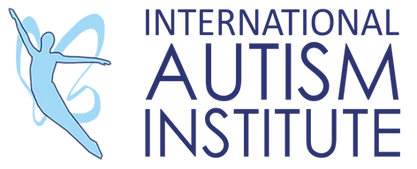

About me

1975-1988
Education: Modern Languages, Linguistics, Psychology & Teaching
Born in Krasnoyarsk (Siberia), I graduated with honours in English/German languages; MSc Psychology and Education.
Afterwards, I went to Moscow to complete my PhD in Linguistics at Moscow State Linguistic University.
I was a Professor and Head of Linguistics Department at Gorlovka University, specialising in theoretical and practical subjects.
1988
The baby who started the whole movement
This was my son. And during his first few years, when I began to notice his idiosyncratic development, I took him to doctor after doctor to find out what was going on. I heard the following:
-
Severe mental retardation
-
Childhood schizophrenia
-
And the final verdict from the ‘specialists': ‘Hopeless’
Only, an accidental meeting with an American psychiatrist (visiting Gorlovka) did I first hear the word: AUTISM
In 1994, the first child was diagnosed with autism in Gorlovka - Alyosha Bogdashin.


1990s
The fight to recognise autism in Ukraine
In Donetsk region (Eastern Ukraine) with a population of more than 3 million people there were NO autistic individuals diagnosed.
In fact, the absence of autism was publicly confirmed by the chief psychiatrist in Gorlovka.
Instead, undiagnosed autistic children were labelled either schizophrenic or mentally retarded, or both (as in the case of my son).
Before we could educate our autistic children, we had to educate our specialists.
1996
First presentation of Sensory Issues
The first time I presented my hypothesis and findings on sensory perception in autism (in Russian) was at the International Autism Conference in Gorlovka in 1996. The first time in English was at the 6th International Autism-Europe Congress in Glasgow, UK (2000).

1998
Our school:
Video in Russian (subtitles in English)

2001
Based on my dissertation: Sensory Issues
As I learnt more and more about autism, I realised that I disagreed with certain “official” understandings of autism and especially behavioral treatments.
At that time, people were not talking about sensory issues in autism.
I came to the UK to work on my dissertation in Sensory Perception in Autism and Asperger Syndrome.
Now, sensory perception is in the centre of research!
2006
Outstanding Achievements
I was presented with OpleidingsCentrum Autisme’s Award for outstanding achievements in the field of autism. (The founder and the first director of the Centre was Theo Peeters, one of the best professionals in the field and one of the most amazing persons I’ve ever met).


mid 2000s
Growing up and moving forward
We learn from each other..


And keep learning about ourselves...
1993
The first school for autistic children
With a group of parents, I founded the first Autism Society of Ukraine ‘From Despair to Hope’ and Storm School – the first school for autistic children in Gorlovka, where I became its first teacher (between my lectures at the university).
The school was ‘illegal’ and not recognised by the authorities as they denied that autism existed! They claimed these children were "ineducable, unmanageable and hopeless"...
Only we didn't agree with this " official prognosis"

We started here...
And in just 10 months...


"The more I learn about autism, the more I understand how little I know"
Further work in autism

Honorary Doctor - Krasnoyarsk Pedagogical University


Co-founder of International Consortium of Autism Institutes

Visiting Professor in Autism Studies,
International presenter at congresses/conferences
Conferences
I have been a key speaker at more than 300 international congresses and conferences
















People
I was also fortunate to meet many amazing inspiring people, including Donna Williams, Lorna Wing, Judith Gould, Helen Irlen and hundreds of others
Online Courses


In 2012, I developed an online course ‘Autism Spectrum’ (2 modules) which was launched by the IAI launched as part of the CPD (Continuing Professional Development) web-based programme and offered by distance learning (2012-2014).
The programme (2012-2014) contained lectures, on-line webinars, discussions, guided reading.
There were 2 versions of the course – in Russian and in English (for the international students).
Two modules in Russian


This course was unique as it was intended to attract a wide range of students from different countries – who wished to learn not only about autism, but also share their experiences – it helped us all to learn about the situation with understanding and treatment of autism in different countries.
In a way, was is an innovative anthropological approach to understanding of autism.
.jpg)

